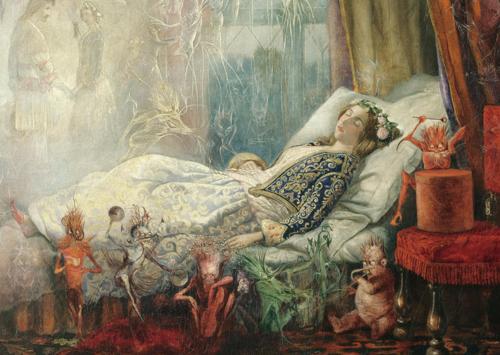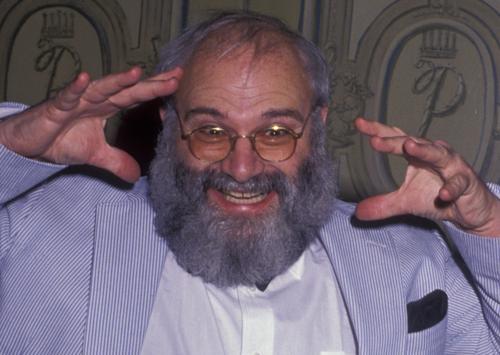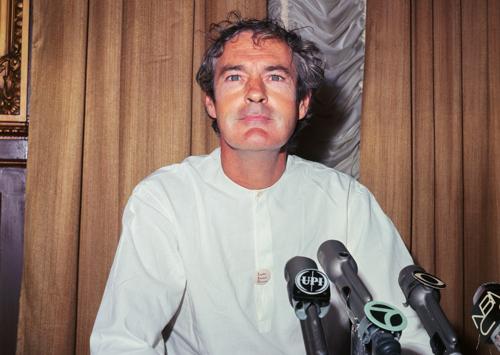Listen to New Voices on Studs Terkel our partnership with 826CHI-here! Read the Story
Showing 1 - 15 of 32 results
-
Studs discusses dreams and computers with Dr. Christopher Evans
1969 Studs discusses dreams, consciousness and computers with psychologist, computer scientist, and author Dr. Christopher Evans. Topics of conversation include the need for humans to dream, contemporary research on sleep and rest, and computer technology. Dr. Evans draws analogies between the behavior of the sleeping and dreaming human brain and the functions of modern computers.
-
Orville Schell discusses his book "Modern Meat: Antibiotics, Hormones, and the Pharmaceutical Farm"
May. 22, 1984 Discussing the book "Modern meat: antibiotics, hormones and the pharmaceutical farm" with the author Orville Schell.
-
Oliver W. Sacks talks with Studs Terkel
Mar. 15, 1995 Discussing the book "An Anthropologist on Mars: Seven Paradoxical Tales" (published by Knopf) with the author, neurologist Dr. Oliver Sacks.
-
Oliver W. Sacks discusses the history of ASL and deaf community
Sep. 21, 1989 Dr. Oliver W. Sacks talks about the treatment of deaf people throughout history and the development of ASL as written in his book "Seeing Voices".
-
Oliver W. Sacks discusses the book "Seeing Voices: A Journey Into the World of the Deaf"
Feb. 5, 1990 Discussing the book "Seeing Voices: A Journey Into the World of the Deaf" (published by University of California Press) with the author, neurologist Dr. Oliver Sacks. Includes passage from the book.
-
Oliver W. Sacks discusses his patients from the book "The Man Who Mistook His Wife for a Hat"; part 2
Dec. 4, 1985 Dr. Oliver W. Sacks details his experiences and approaches to helping patients with various intellectual and physical neurological disorders; part 2.
-
Oliver W. Sacks discusses deaf experiences as detailed in his book "Seeing Voices"
Oct. 26, 1990 Dr. Oliver W. Sacks discusses people and concepts presented in his book "Seeing Voices"; the interview is for the paperback release.
-
Oliver Sacks discusses his work in neurology and the books he has written
Dec. 4, 1985 Oliver Sacks, a neurologist and author, speaks with Studs Terkel about his work in neurology and some of the books he has written. This is the first part of two interviews with Sacks.
-
Interview with Dr. Robert Coles
Jun. 2, 1978 Interviewing author and child psychiatrist Dr. Robert Coles.
-
Interview with Dr. Robert Coles
Apr. 22, 1986 Discussing the book "The Political Life of Children" (published by Atlantic Monthly Press) with the author, child psychiatrist Dr. Robert Coles.
-
Interview with Dr. Robert Coles
Dec. 20, 1990 Discussing the book "The Spiritual Life of Children" (published by Houghton Mifflin) with the author, child psychiatrist Dr. Robert Coles.
-
Interview with Dr. Charles Clements and Asa Baber
May. 20, 1986 Interviewing Vietnam veterans and peace activists Dr. Charles Clements and Asa Baber.
-
Dr. Timothy Leary discusses the stages of the psychadelic experience of turning on and his role as a Shaman ; part 2
Dec. 1, 1966 Studs interviews Dr. Timothy Leary about the three stages of the psychadelic experience: turning on, tuning in, and dropout. Leary discusses how his life changed from being a successful psychologist and professor at Harvard to renewing his life as a religious teacher. He shares how the drug LSD is used in the tribal communities who turn on and also explains the values of those who practice turning on. Leary also describes other methods used to turn on, which he considers a religious experience. Studs reads what Richard Goldstein said about Dr. Leary.






